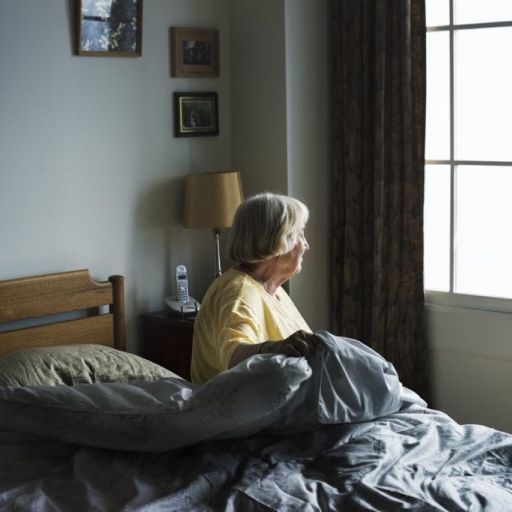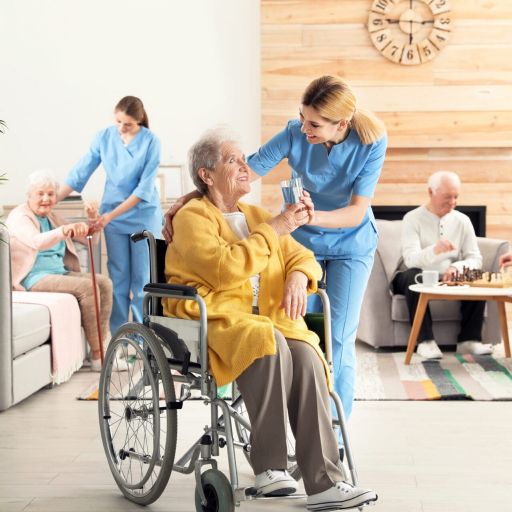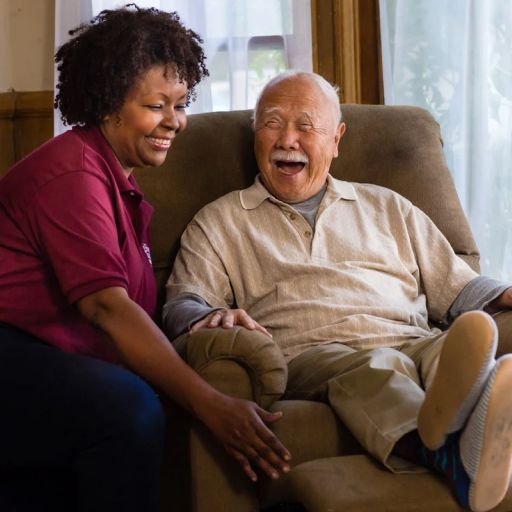What You Need to Know About Secured Credit Card Deposits!
Weighing the Pros and Cons: Using a Personal Loan to Tackle Credit Card Debt.
What do you Know About Credit Scores!
Unveiling the Truth: Debunking Home Insurance Myths.
About Balance Transfer Basics!
Insuring Your Peace of Mind: An Overview of Common Types of Insurance.




The time has come. You are now facing a big, life-changing decision. Your beloved parent, or even a grandparent, has reached an age where they need extra help. Maybe just a little help with everyday tasks, or maybe full-time care.
Whatever the case, you face two main paths: keep them at home, with the comfort and personalised service of a familiar setting? Or turn to professional care in a nursing home, where medical support and social activities are all part of the package deal? It’s a heart-wrenching choice, often filled with guilt and uncertainty.
But you’re not alone! Thousands of families face this crossroads every day, and it’s normal to feel like you’re treading into an emotional minefield.
Home Care: Simple, Safe
Let’s start with home care. You know, your elderly person sipping tea peacefully by the window, with a carer watching over them, a safe haven, a place full of memories, sounds perfect doesn’t it?
There’s something special about being surrounded by your own things – your own bed, your favourite armchair, the smell of your kitchen and friendly neighbours next door. For older people, staying at home means they can retain that sense of independence.
They don’t have to deal with the shock of moving to a new environment where everything feels unfamiliar. Imagine moving out of a home you’ve lived in for decades – it’s a tough thing to bear at any age, let alone in your golden years! Home care is highly customized.
Whether you hire a professional caregiver or rely on family to help, care services are personalized to your loved one’s needs. In a nursing home, you don’t have to wait in line for a nurse who’s taking care of ten other patients – here, it’s all about grandma!
Plus, you can choose the time, frequency, and type of care you need, whether it’s medical care, companionship, or help with daily tasks.

Home Care: One-to-One Attention
Unlike nursing homes, where the staff-to-patient ratio can be a bit tight, home care offers one-to-one attention. The caregiver focuses solely on your loved one. If they need help getting out of bed, someone is there.
If they want a specific meal, they’re not at the mercy of a pre-planned menu by the kitchen staff. It’s all about providing personalized support and emotional comfort. Home care often brings families closer together.
You’ll have more opportunities to visit and be involved in your loved one’s care. If your loved one lives in a house they've always known, it's easier to visit them or have dinner together on Sundays. At first glance, home care may seem cheaper than the expensive costs of a nursing home.
If you're only looking for part-time care, hiring a caregiver to come in a few times a week may fit your budget. Plus, you won't have to pay for nursing home overhead, such as room rentals, utilities, and other bundled costs.

Home Care: The Cons
Home care can sometimes feel like wielding a flaming sword. While it's great to have control over the care process, it also means you're responsible for everything—finding and vetting caregivers, scheduling, paying bills, and handling any unforeseen emergencies.
And yes, those emergencies happen. Here's the scary reality: Homes aren't always built with senior safety in mind. Stairs, slippery showers, uneven carpets, or just plain clutter can turn your house into an obstacle course for seniors.
To make it safe, you may need to do some serious renovations—ramps, handrails, bathroom modifications—which can get expensive fast! One of the big downsides to home care is that it can be lonely.
Sure, you or a caregiver may be around a lot, but what about those times when they’re alone? Seniors living at home alone can start to feel lonely, which can lead to depression. Social interaction is super important for mental and emotional health, but it can be tricky to provide in a home setting.
If you’re caring for your loved one in a hands-on way, be prepared for the emotional and physical roller coaster that comes with caregiver burnout. The constant pressure to balance your loved one’s needs with your own life can wear you out quickly. You may start to feel resentful, exhausted, and completely drained of energy.

Nursing Homes: Wellness Hotels
Now, let’s talk about nursing homes. These places offer something that home care doesn’t: professional care around the clock. It’s like staying in a wellness hotel, but with its own ups and downs. Whether it’s 2 p.m. or 2 a.m., there’s always a nurse, doctor, or caregiver available to handle any medical issues that arise.
Your loved one will have easy access to medications, physical therapy, and professional care that wouldn’t be possible in most home settings. They’ll also be constantly monitored, so if anything goes wrong, someone will be there to act quickly.
Nursing homes run like clockwork. Meals, activities, medications, and even bedtimes are strictly scheduled. While this may sound rigid to some, it can be a comforting aspect of their day for seniors who prefer to stay on track.
This structured environment ensures your loved one gets the care they need on time every day. You don’t have to worry about whether they took their medication or had a decent meal, everything will be taken care of!

Nursing homes: convenient socialization
Home care can sometimes be lonely, but nursing homes offer a social buffet! Here, you can chat with other residents, have dinner together, and participate in group activities such as bingo, movie nights, and even outings.
This social activity is great for mental health and can help avoid depression or cognitive decline. Plus, your loved one may make new friends. Unlike home care, there is no need to transform the house into a defensive fortress for the elderly.
Nursing homes are designed with the safety of the elderly in mind, with security bars in the bathrooms, elevators instead of stairs, non-slip floors, and emergency call buttons in every room. This is already a built-in safety zone, which is a huge relief for families.
Caring for an aging loved one can be exhausting. Nursing homes share this burden for you. You can rest easy knowing they are in a place with professional caregivers and you can focus on visiting and spending quality time together, rather than worrying about their daily needs.
This way, you can play more of a family member and less of a stressed-out caregiver.

Nursing Homes: The Cons
No matter how lovely a nursing home is, it is not a home. The transition is tough for both the elderly and their families. Leaving a place filled with decades of memories and personal belongings can take an emotional toll. Some elderly people have trouble adjusting and feel like they have lost their independence and privacy.
Nursing homes are expensive. We are talking thousands of dollars per month, which is a huge financial burden for many families. Medicare and insurance may cover some of the costs, but not all. Long-term care in a nursing home can quickly eat up savings, leaving families grappling with how to pay for it.
Not all nursing homes are the same. Some nursing homes are underfunded or understaffed, resulting in less-than-satisfactory quality of care. Sadly, neglect or lack of attention can happen because staff are overworked.
You’ll need to thoroughly research the nursing home you’re considering to make sure it has a good reputation and is adequately staffed. In a nursing home, your loved one is just one of many residents. Caregivers are juggling multiple residents, which means they may not get the personal attention they would at home.
This can result in longer wait times for help, meals, or assistance with daily tasks. You lose some of your freedom in a nursing home. Meals are served at specific times, so there’s not a lot of room for creativity. Want a late-night snack or to sleep in until noon?
Sorry, that’s not possible. Some nursing homes have strict visiting policies that limit visiting hours or what family members can bring into the home, which can be restrictive for both you and your loved one.